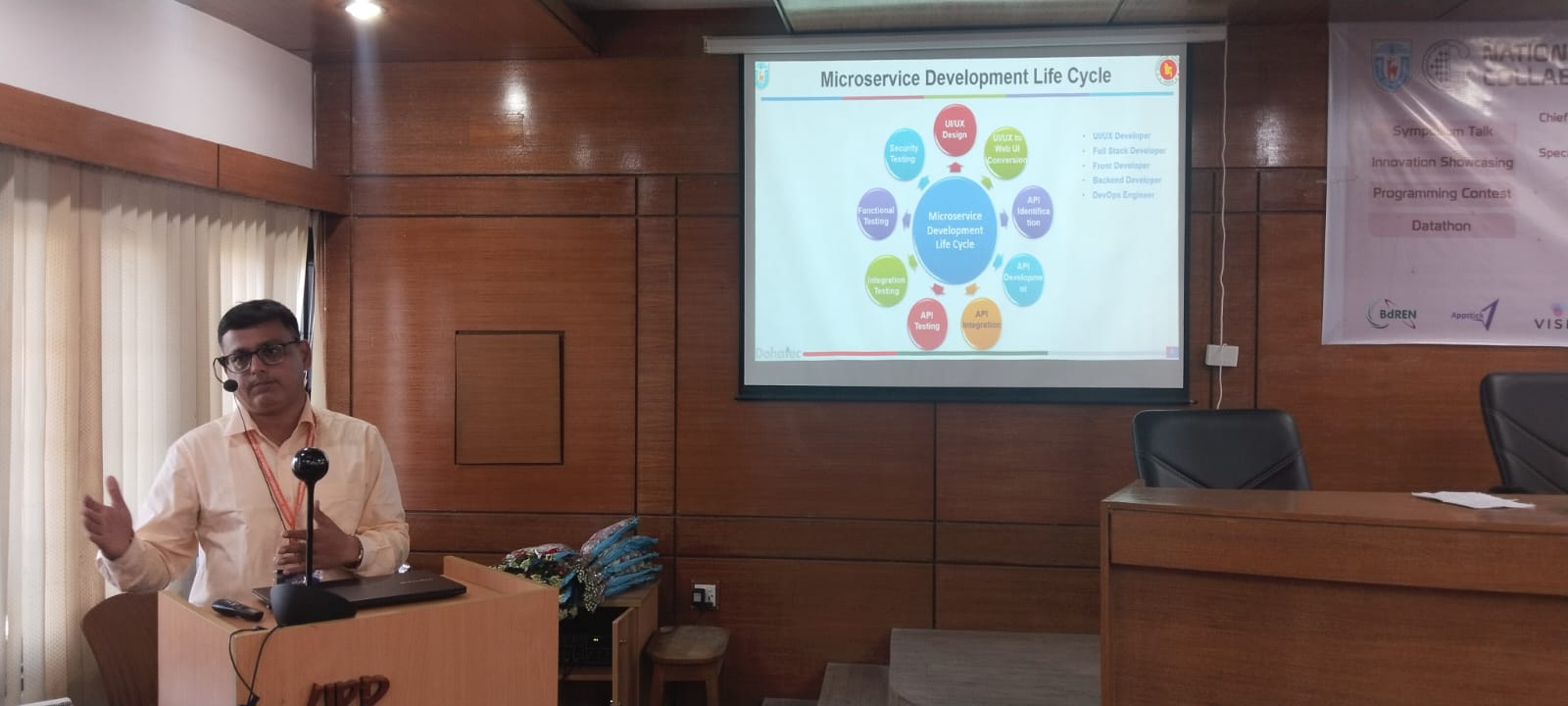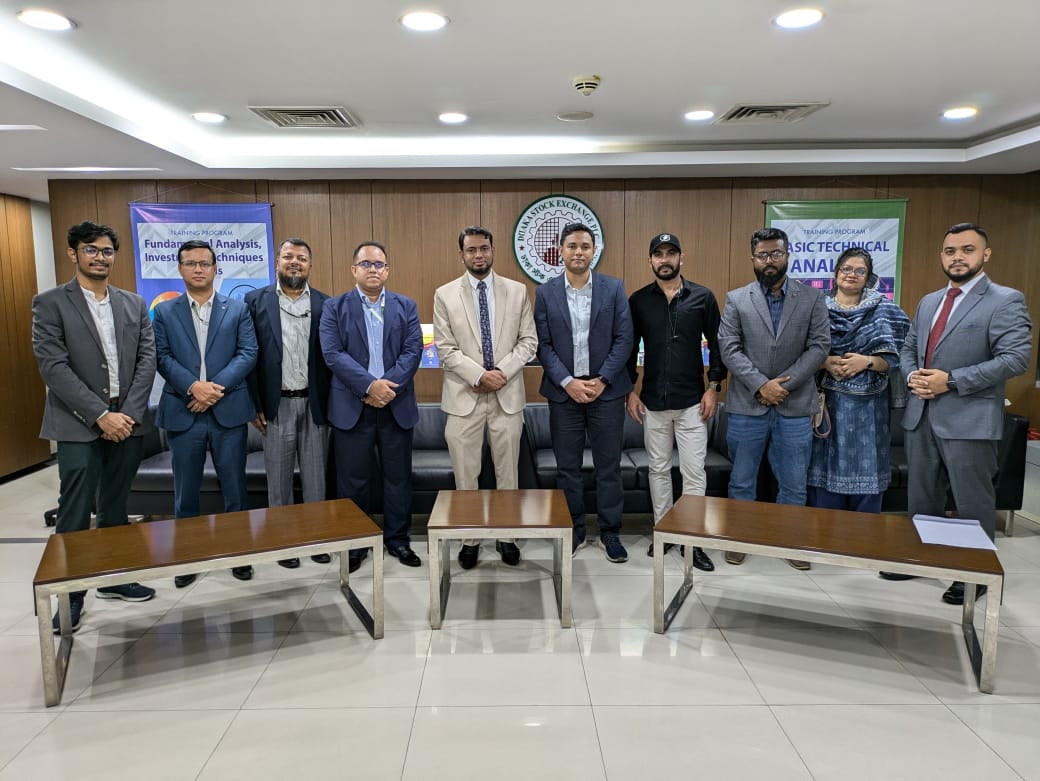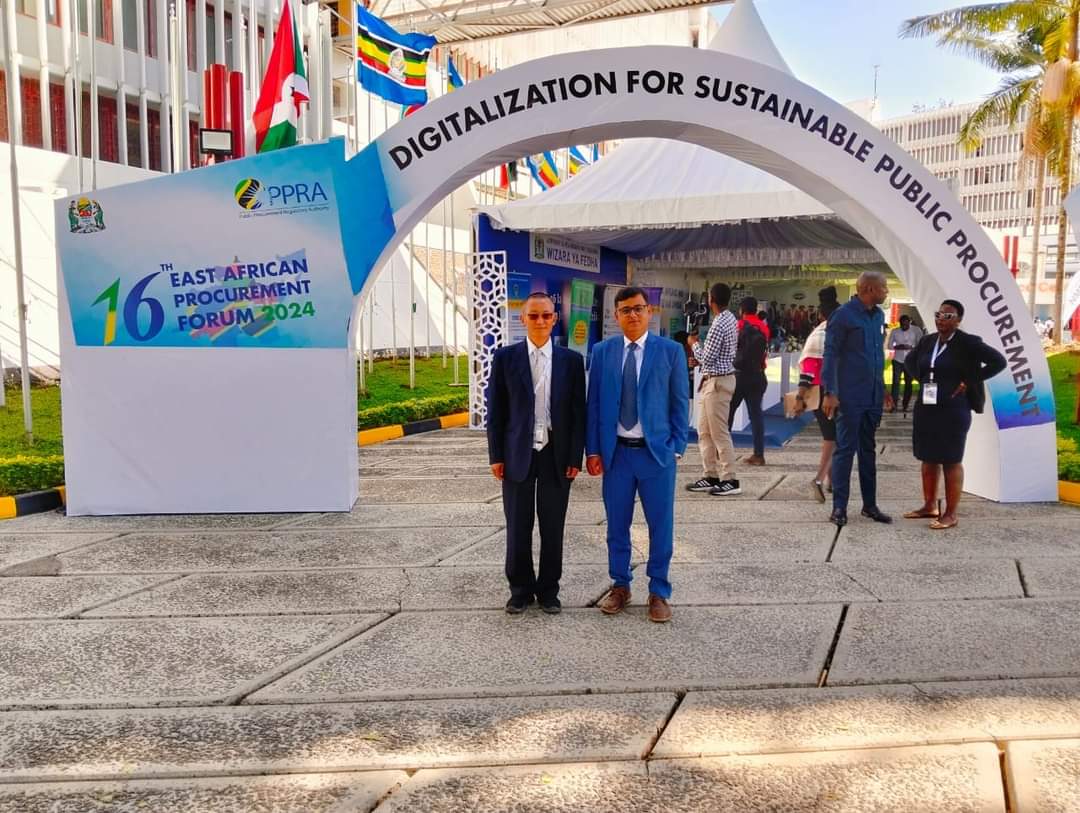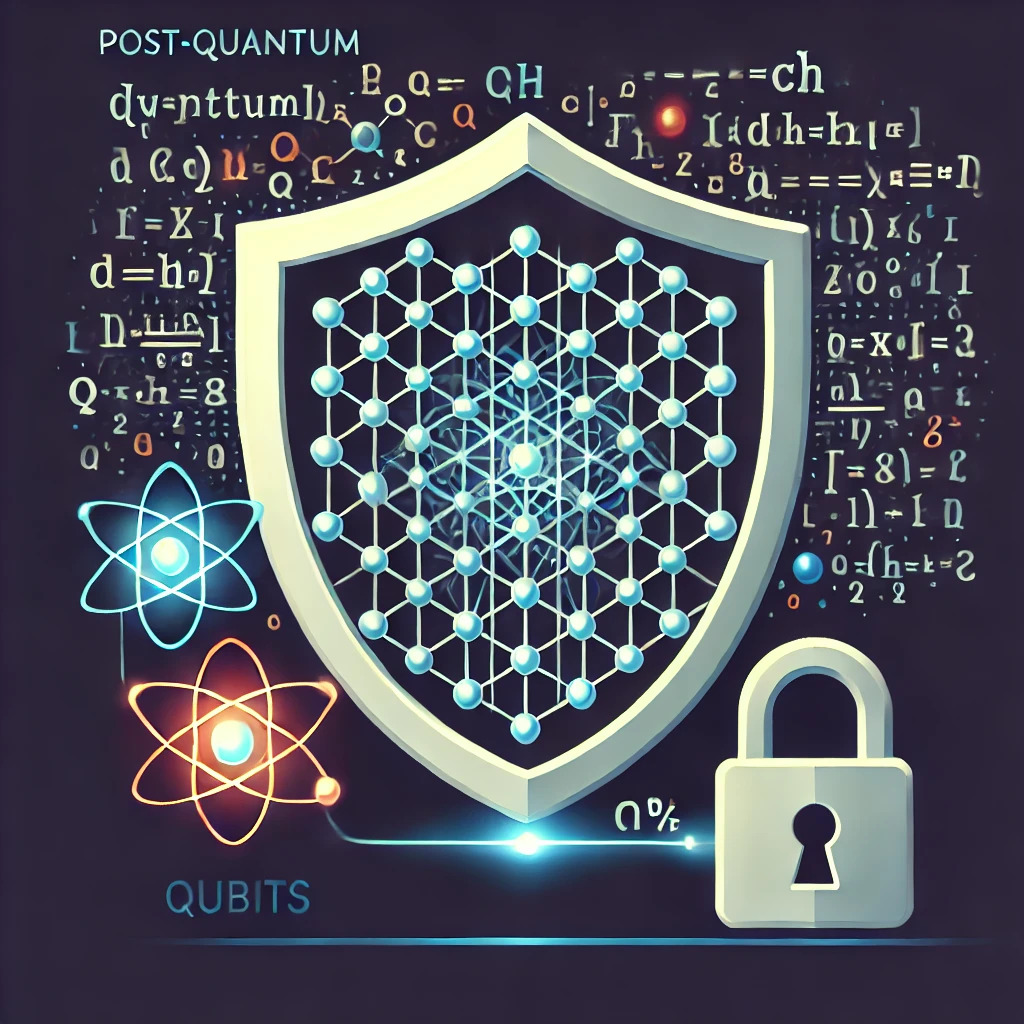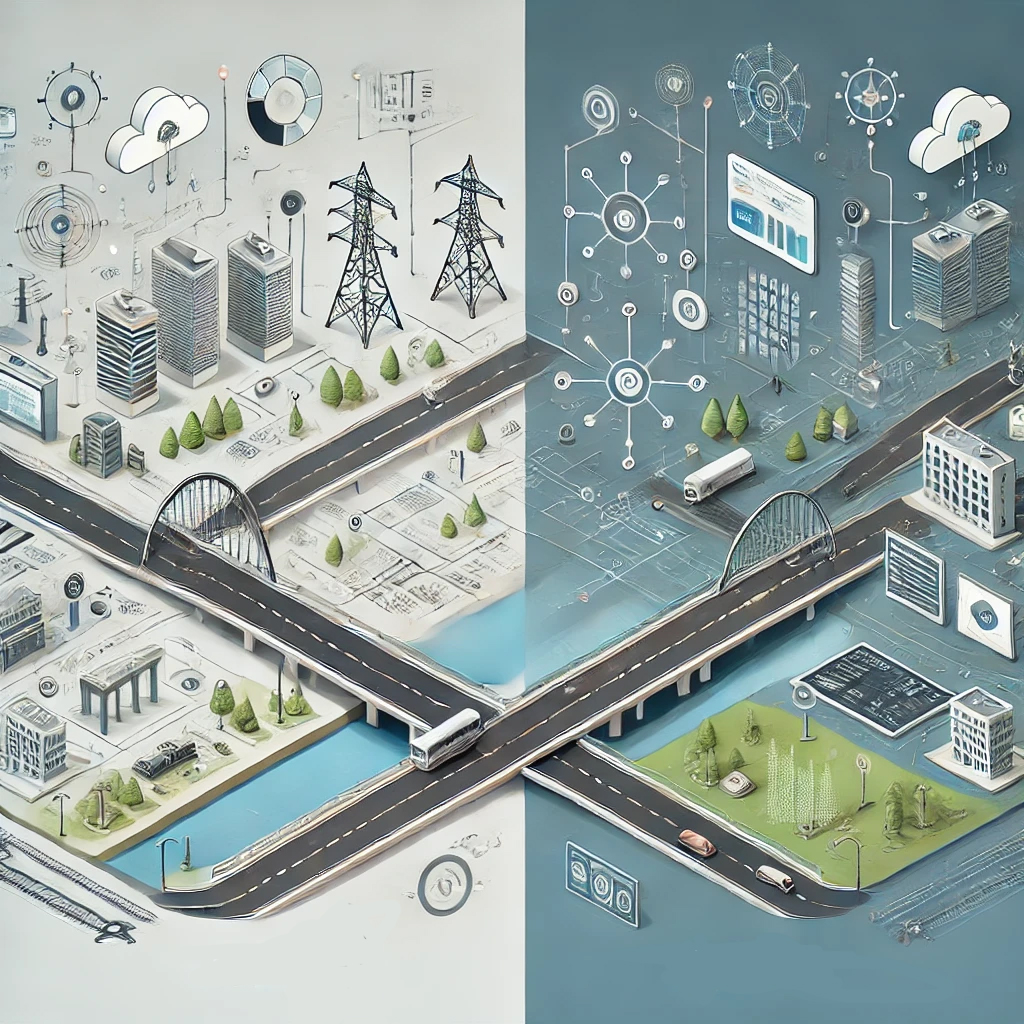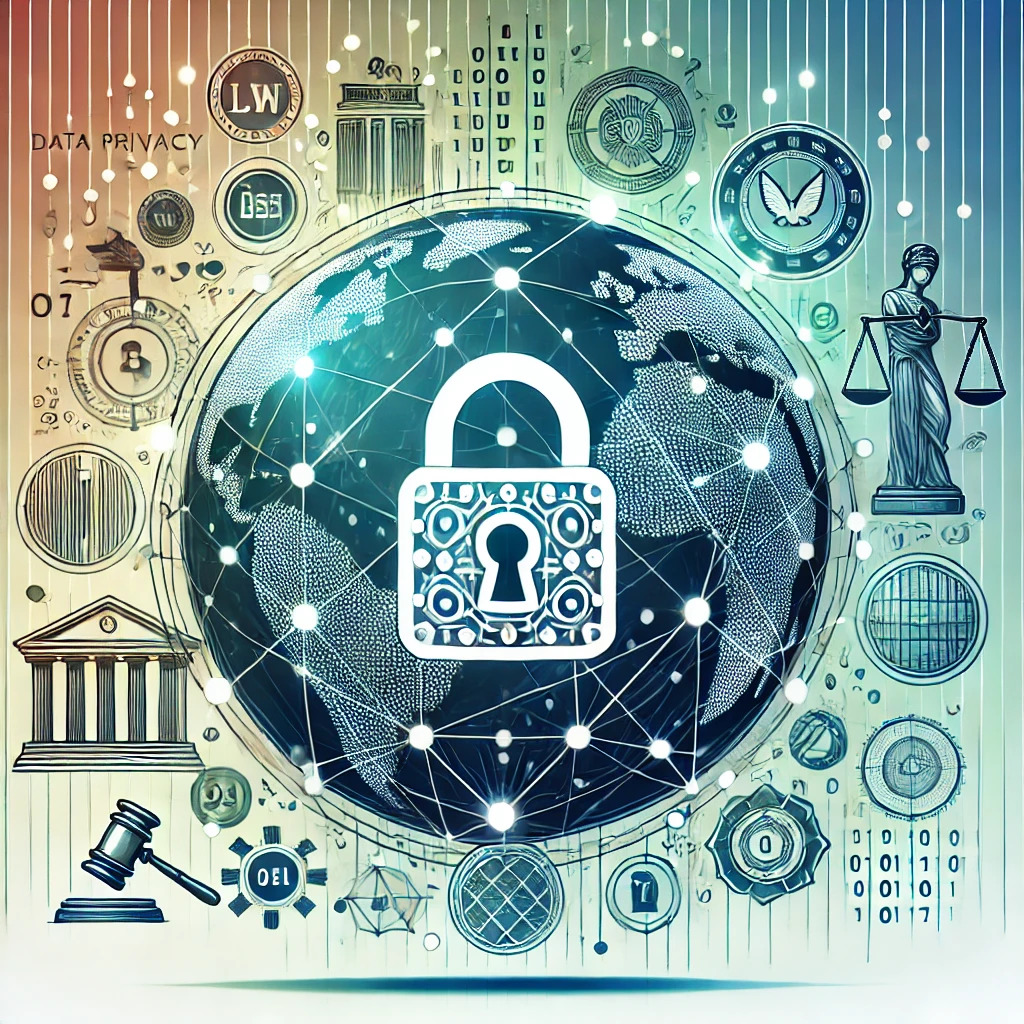The Symposium Talk, a core activity of the “National Symposium on Industry-Academia Collaboration for ICT-enabled Bangladesh”, provided an interactive platform for prominent leaders and experts to meet and discuss the […]
Dohatec’s Disappointing Day: A Setback in ISCT20 Campaign
In their second match of the ISCT 2024, Dohatec New Media suffered a frustrating defeat in a low-scoring thriller at the hands of ERA Infotech. The thrilling game took place […]
Dohatec’s Demolishing Display: Exabyting Overwhelmed
In the opening match of the ISCT20 2024 edition, the Dohatec New Media cricket team squared off against the debutant team, Exabyting, on Friday, November 8th. On a bright and […]
Doha Securities Achieves FIX Certification for PQCAL: Advancing Bangladesh’s Trading Technology
On October 23, 2024, the Dhaka Stock Exchange (DSE) held a certification ceremony in which Doha Securities received FIX certification for its Order Management System (OMS) platform,PQCAL.This certification, awarded by […]
Dohatec Representative Attends PMI Global Summit 2024
The PMI Global Summit 2024 in Los Angeles, themed “Powering the Project Economy,” brought together project management professionals from around the world to explore cutting-edge tools and practices. Representing Dohatec at this prestigious event was Senior Engineer Imtiaz Zaman Nishith, a certified PMP, who gained insights into the latest trends in agile methodologies, AI integration, and project management innovation. Dohatec’s commitment to fostering a culture of excellence and staying ahead in the ever-evolving field of project management was highlighted through Nishith’s participation, reinforcing the company’s dedication to delivering forward-thinking solutions.
Dohatec’s Director Shines at the 16th East African Procurement Forum
At the 16th East African Procurement Forum (EAPF) in Arusha, Tanzania, Dohatec New Media’s e-GP Director, Mr. Nazmul Islam Bhuiyan, shared insights into Bangladesh’s transformative e-Audit Module in public procurement. His presentation highlighted how the module enhances transparency, accountability, and efficiency in procurement processes, sparking interest from six countries in adopting Bangladesh’s e-GP system. Dohatec’s participation underscored its commitment to driving digital transformation in public procurement and advancing GovTech solutions in the East African region.
Quantum Revolution: Securing GovTech
The emergence of quantum computing poses a major challenge to conventional cybersecurity methods. Unlike classical computers, which rely on bits, quantum computers use qubits, allowing them to solve complex problems at an exponentially faster rate. This presents a significant threat to encryption algorithms commonly employed to safeguard sensitive data. Governments need to make proactive investments in quantum-resistant cryptographic algorithms and transition to quantum-safe infrastructure to address these risks. This will help them protect crucial information and maintain a competitive advantage in the digital era.
Transforming Cities and Security: The Digital Twin Revolution
In today’s rapidly evolving digital landscape, governments are turning to digital twin technology to enhance infrastructure management, bolster public safety, and optimize resource allocation. By creating virtual replicas of physical assets, such as bridges, roads, and public buildings, governments can monitor real-time data, predict maintenance needs, and simulate various scenarios to improve decision-making. While digital twins offer numerous benefits, including increased efficiency and security, they also introduce new challenges that require robust strategies to protect sensitive information and critical systems.
A Framework for Privacy: Understanding Bangladesh’s Data Laws
In today’s digital age, personal data has become an invaluable asset. As individuals and organizations increasingly rely on technology, the risks associated with data breaches and unauthorized access have grown significantly. Bangladesh, like many countries, has recognized the importance of data privacy and has taken steps to strengthen its legal framework. However, challenges remain in ensuring effective implementation and enforcement.
This article explores the current state of data privacy in Bangladesh, including the key regulations and initiatives in place. It also examines the challenges faced in implementing these laws and the potential benefits of a robust data privacy framework. By understanding the importance of data protection and taking proactive measures, Bangladesh can safeguard its citizens’ rights, foster innovation, and build a more secure digital future.
Adapting and Advancing: Ethical Hacking in the Digital Age
In today’s digital landscape, where cyber threats are becoming increasingly sophisticated, ethical hacking has become a crucial component of a robust cybersecurity strategy. Ethical hackers can help organizations strengthen their defences and mitigate cyberattack risks by proactively identifying and exploiting vulnerabilities. This practice is particularly critical for governments, which often handle sensitive data that is highly valuable to malicious actors. Ethical hackers can simulate real-world attacks, allowing organizations to identify weaknesses and develop effective countermeasures, ultimately protecting critical infrastructure and national security.
